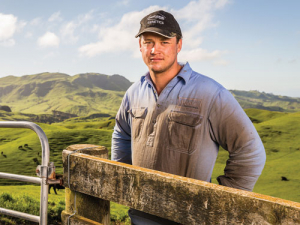Last year the test showed superior growth rates for the Simmental breed compared to Angus, Hereford & Charolais. Recently the 52 bulls involved in cohort 1 of the progeny test were ultrasound scanned, providing a snapshot of their meat quality.
The results show how the different sires of the five breeds are performing with regard to intra muscular fat (IMF), or marbling, a key indicator for meat quality.
National beef genetics manager for BLNZ Genetics Max Tweedie says there’s a tendency for Angus cattle to have the highest IMF, but there are Simmental sires that have performed above the average for the group and above some Angus sires.
“They performed at or above expectation for a terminal breed. There are certainly bulls in the Simmental breed that have both traits (strong growth and marbling) and the results are hammering that home.”
He says while the ultrasound results are not as conclusive as carcase results collected in the abattoir, being released next month, they give an indicative sire comparison.
Now in its fourth year, the beef progeny test is being run on five large commercial properties, involving about 2200 cows and heifers each year. It aims to determine how bulls of different breeds – Angus, Hereford, Stabilzer, Simmental and Charolais, from USA, Australia and NZ – perform under comparable commercial conditions in different environments, capture the worth of superior genetics from breeding cow performance, finishing ability and carcase attributes.
Simmental NZ council member Daniel Absolom says the across-breed performance and variation within breed between sires is of most interest. For Simmental to show such superior growth performance from birth to slaughter should be compelling for commercial farmers to consider them as terminal sires, he says.
“The early indication from the ultrasound is that they are competitive in meat quality. Effectively they are punching above their weight because the European breeds have not previously been recognised in NZ as having that sort of marbling.”
The ultrasound results are available on the BLNZ Genetics website.

















